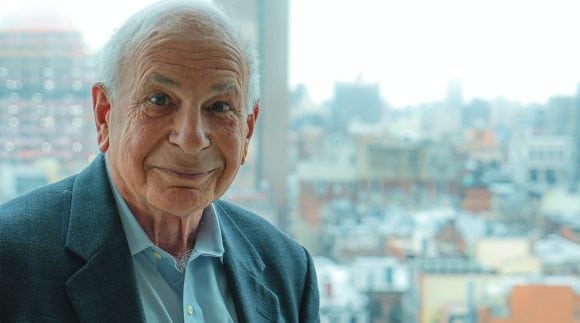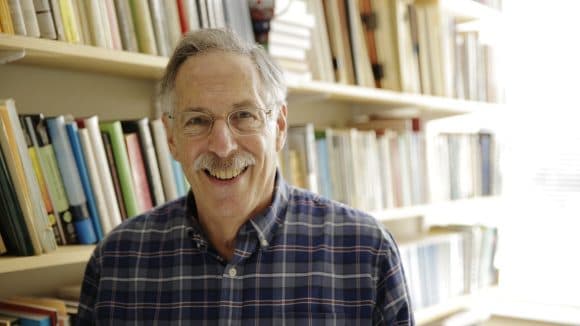When you’re deciding to buy a house, a car, or to put your child through college, you’re thinking ahead. You’re wondering whether the price of the house or the car will go up or down, whether the child who goes to college will get a good job. Your considerations influence the decisions you end up making. There’s nothing new or surprising about this, yet this seemingly common wisdom wasn’t a part of economic modeling until the work of Bob Lucas.

Robert E. Lucas
The Sveriges Riksbank Prize in Economic Sciences in Memory of Alfred Nobel (shared), 1995
Before and after Bob Lucas
Before and after Bob Lucas
It’s not surprising that the Nobel Committee acknowledged Lucas’ work as the one that marks a clear watershed of before and after in the way macroeconomic analysis is done. While many contributions to economics, from policy analysis to finance to economic growth, come under Lucas’ name, there is one that stands out. It’s his 1972 paper “Expectations and the Neutrality of Money” that inspired a host of contributions and left a legacy unlike any other. Macroeconomic models now include the effect that future earnings and spending have on today’s decisions.
Trying to understand what people think
Has this question inspired you?
Get the latest Nobel perspectives delivered to you.
What Lucas did was to take an idea of rational expectations and model it mathematically. Mathematics lies at the core of how he thinks about the world and things that matter to him. His workflow roughly goes as follows. First, he invents a fictional world, very similar to fiction writers, and works out mathematically how would this world operates under various circumstances. Second, he tries to see if there are analogies between the real world and this fictional world of mathematical modeling. "If we were to describe people’s behavior, we want our models to actually line up with what we’re doing," he says. “And Rational Expectations is a way to do that."
Economics for Lucas is about people and how they decide what to do. “Anything that happens in the economy happens because people do this or that or something else,” he continues. “If we’re trying to understand that, we have to get inside those people and ask what they’re thinking. The rational expectations answer is they’re thinking what they should be thinking. If they’re making a forecast they’re probably doing it well. People know their own business better than outsiders like economists do and we want to try and get into that."
Zooming into people’s lives, and zooming out to models
Zooming into people’s lives, and zooming out to models
How is it that people and their decisions remain the focus of a rather abstract macroeconomics analysis in Lucas’ work? The answer reveals itself throughout the conversation at his 6th Avenue apartment overlooking New York City. As if visually supporting the subject of our conversation, the cars and pedestrians appear smaller and less relevant than they actually are in the bigger context of the city.
As a former student of history who’d been inspired by Karl Marx and Friedrich Engels’ 1848 The Communist Manifesto, he is profoundly interested in how ordinary people live, work and what they do.
“You’ve got to take people as they are and not as you might wish they were,” he says. “You’ve got to make it real. We’re trying to describe a whole economy through 300 million people in six or eight equations; that’s abstraction. There’s no question about that.”
Why aren’t we Marxists anymore?
How do you keep it simple when modeling an entire economy?
How do you keep it simple when modeling an entire economy?
Keeping it simple is how mathematical modeling approximates the laboratory conditions in economic sciences. Playing around with the policies in models, like raising taxes or subsidizing industries, doesn’t put people’s lives in danger. When successful, Lucas suggests that the insights gleaned from models can be implemented in the real world. These connections through math are not simply a given, they’re something carefully constructed by economists.
Simplify, the Sir Isaac Newton way
Lucas suggests that getting down to something simple and practical is easier said than done. "The whole point of macroeconomics is to simplify on a couple of things and not get lost in the details," he says. "So we often talk about people as though everybody is acting exactly the same way for exactly the same reasons. There’s no such thing, obviously. But there’s no point in setting out complicated theories when you can’t work out their consequences. So complication is the enemy."
"I haven’t hit Newton’s level, I know," the economist says. "But when Newton looked at the Earth going around the sun, he neglected all the other planets because he couldn’t handle all 10 planets. He figured he’d get pretty close, which of course he did. That’s how you do it. You start with something simple and develop it as far as you can."
“Bob’s models reveal that he has a very unusual mastery of how to tell a story as simply as possible to contain the essence of the situation,” says Andrew Caplin, Lucas’ colleague at NYU. “He’s doing the simplest thing you could possibly do that wasn’t ridiculous.”
Seeing the world through discussing ideas
Seeing the world through discussing ideas
While Chicago is definitely "the only home I got," being at NYU is an intellectual treat for Lucas. "It’s stimulating to be here," the economist reveals. "At any place you work, you tend to have the same conversations over and over again after a while. Even if the people are smart and interesting. A place like NYU, it’s just an eye-opener: to talk to people who are smart, and doing good work I’ve never seen before. Something that’s really new and novel. It’s very useful, it’s good to get out to see the world. And NYU is a great place for that."
Why education is so important
Has this question inspired you?
Get the latest Nobel perspectives delivered to you.
As we see him off at Grand Central Station to catch his train to a conference in Philadelphia, Lucas opens up even more about what’s important to him in life, apart from economics. Socially, what matters to him is having a regular exchange of ideas with people who are similarly driven.
You want to hang around with idealistic people, people who really want the truth, who help you. You want to have people around who really care about what they’re doing and I’ve had great luck with that.
Why do countries have to find better ways to grow?
Hear Michael Spence's view on how countries can grow sustainably while having a long-lasting positive impact.
What does Lucas’ work mean for us?
More Nobel Laureate stories
Has this question inspired you?
Get the latest Nobel Perspectives updates delivered to you.



